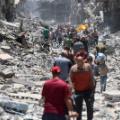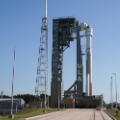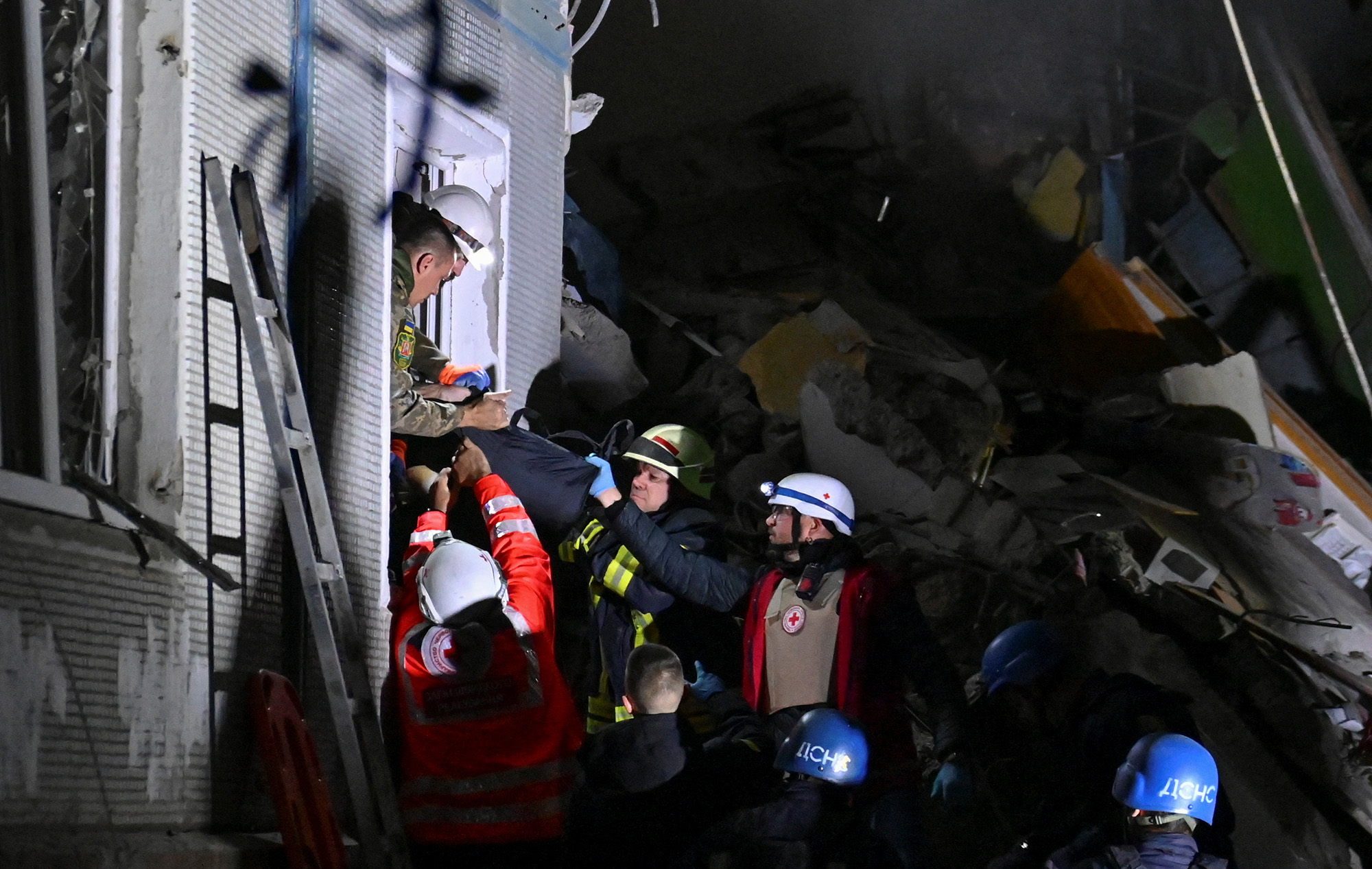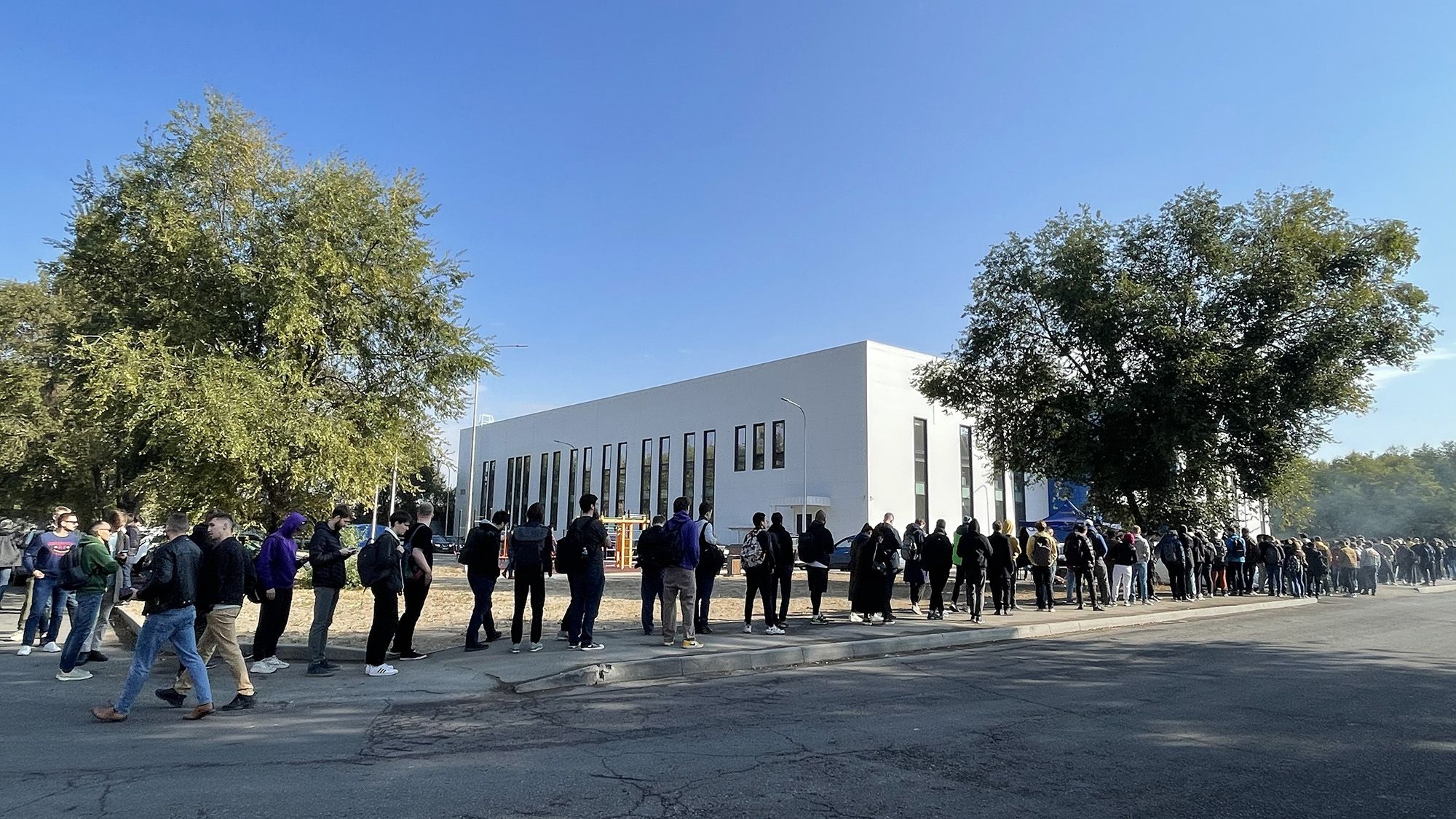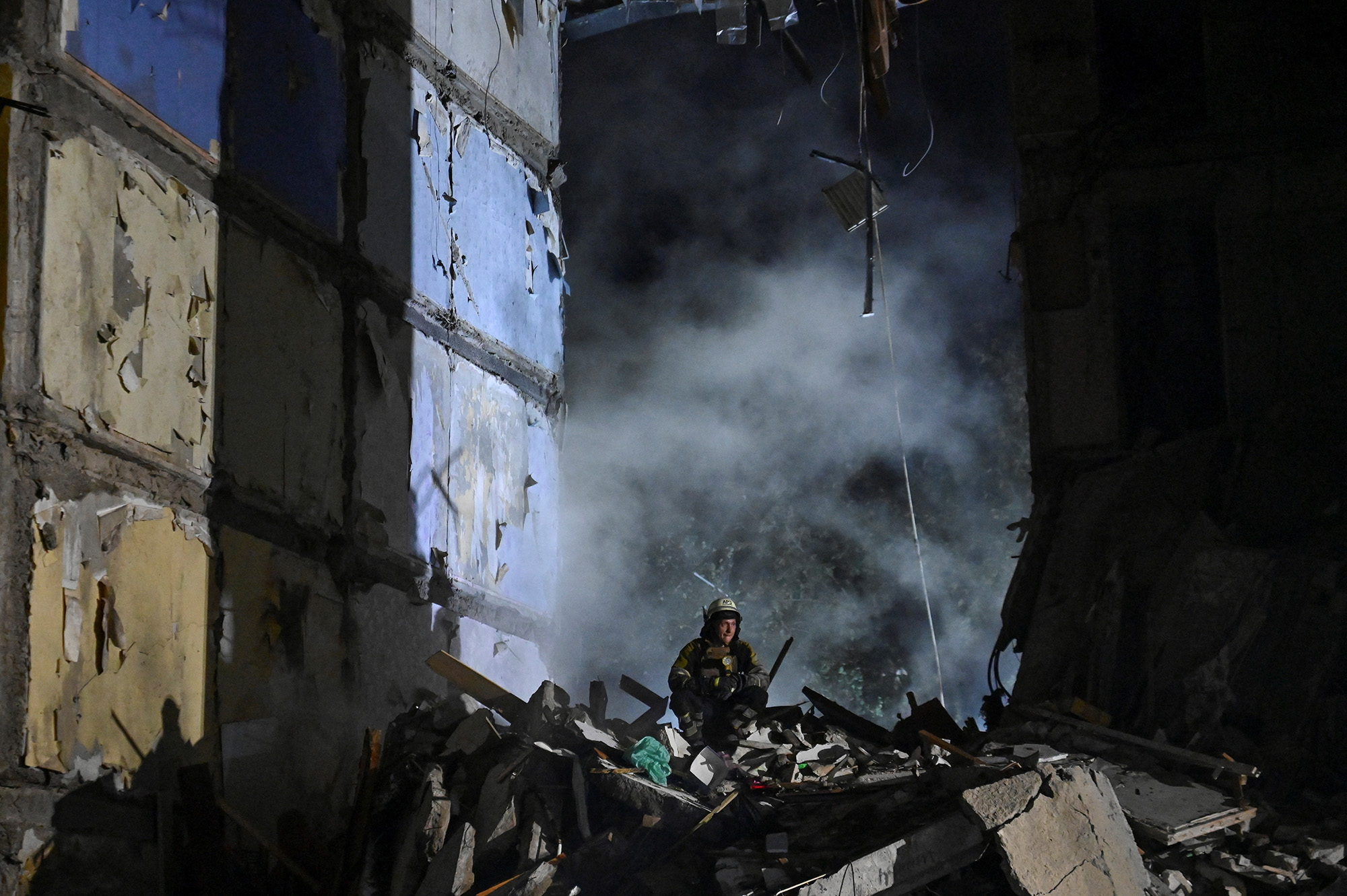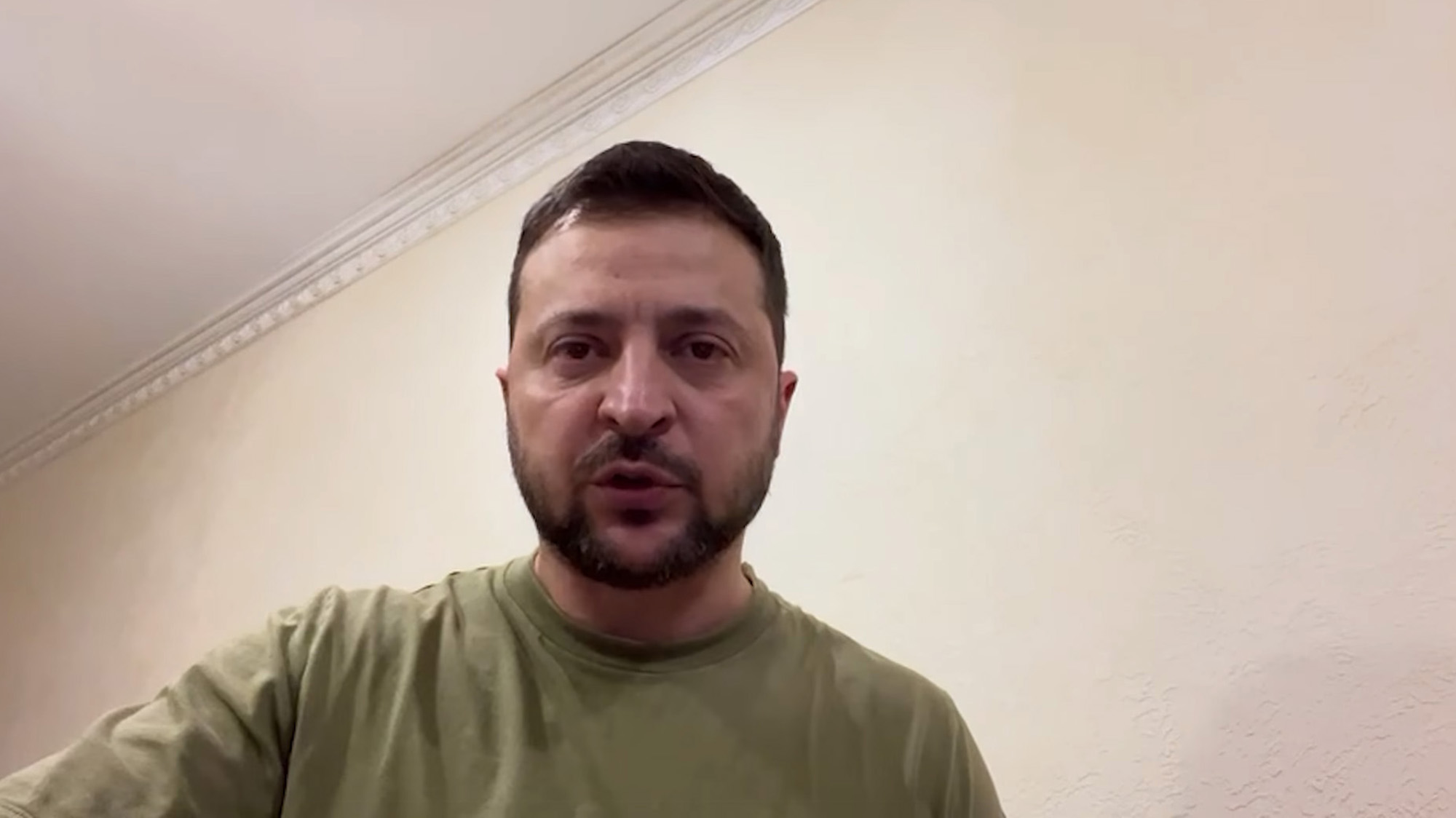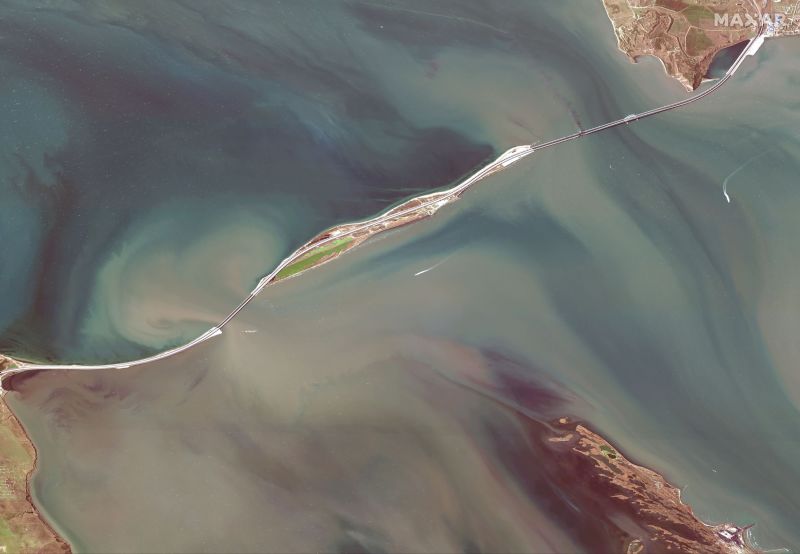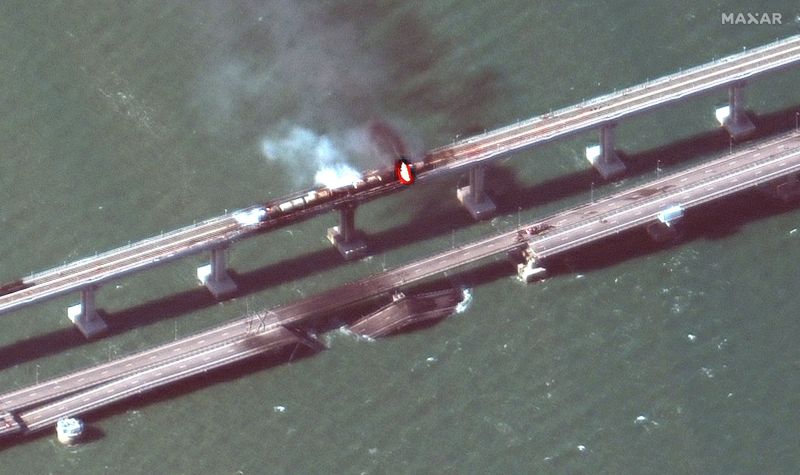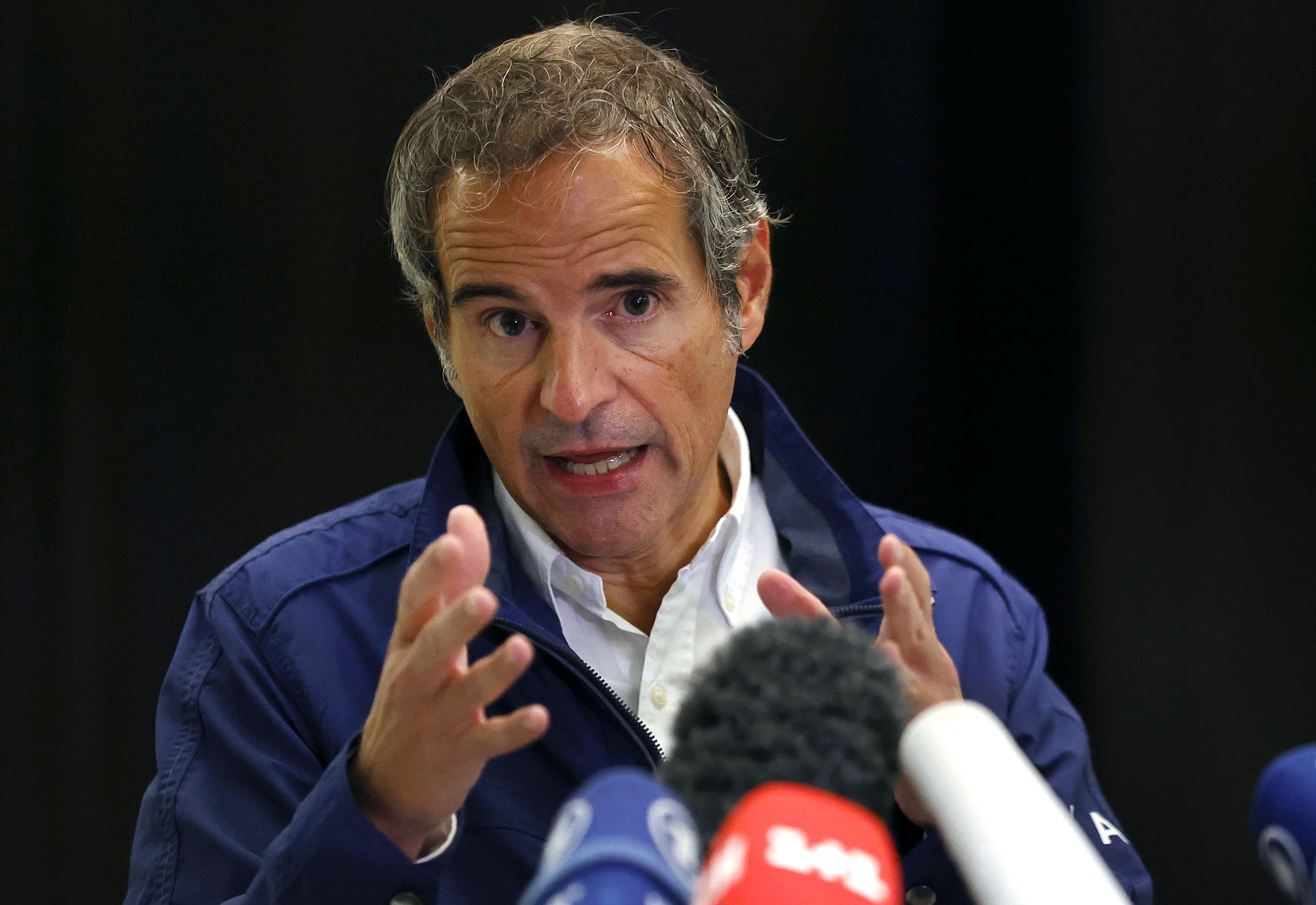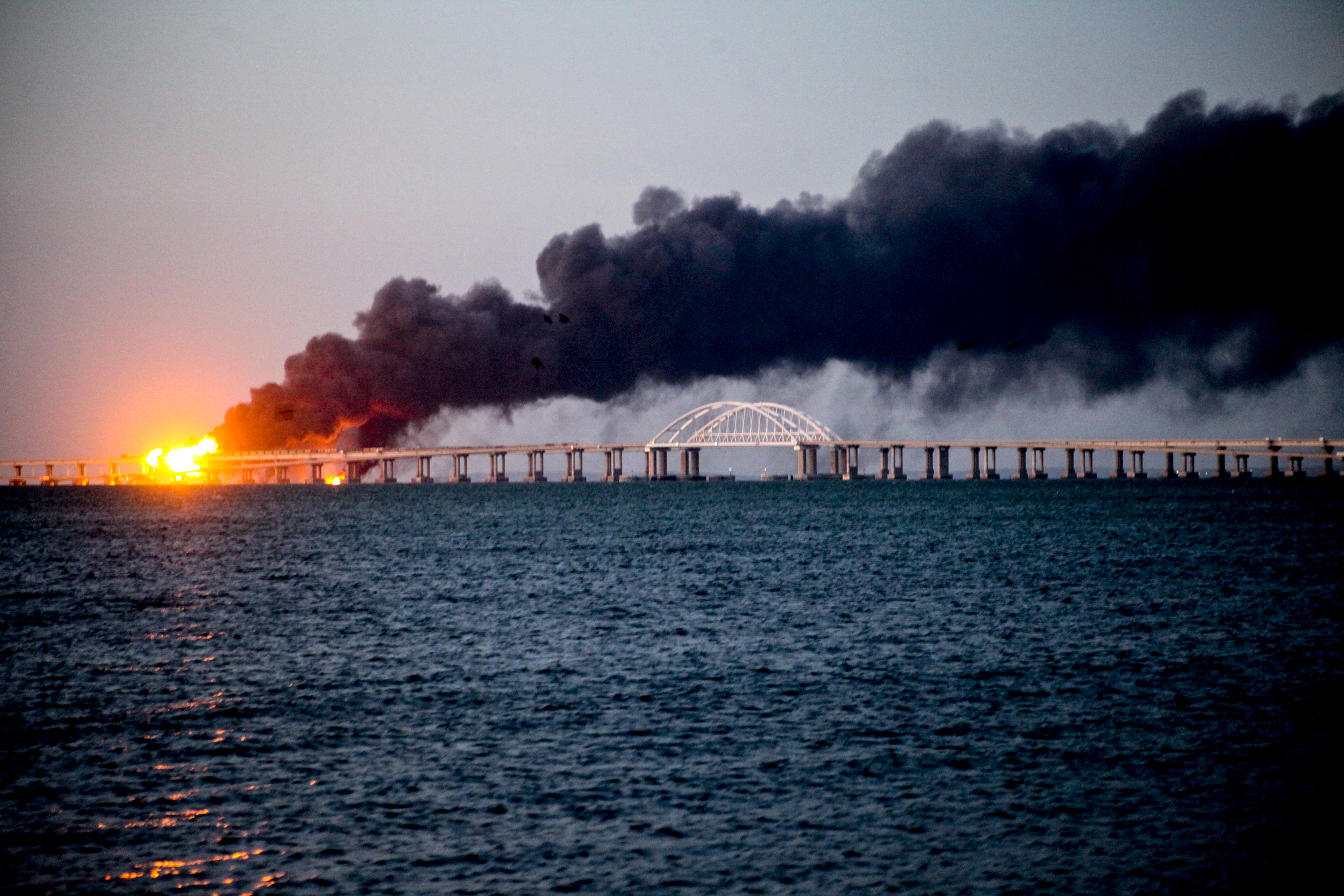Russian President Vladimir Putin has signed a decree strengthening the defenses of the only bridge connecting annexed Crimea to the Russian mainland after a huge blast early Saturday severely damaged its structure.
Here's what led up to this:
The blast: A huge explosion severely damaged the only bridge connecting annexed Crimea to the Russian mainland, causing parts of Europe’s longest bridge to collapse. At least three people were were killed, according to Russian officials.
Ukrainian leaders celebrate: While stopping short of claiming responsibility, high-ranking Ukrainian officials publicly celebrated the bridge explosion. Ukraine's secretary of the National Security and Defense Council posted a taunting birthday message for Putin and the postal service announced stamps commemorating the blast. In Kyiv, residents posed for selfies in front of a billboard depicting the burning bridge.
The damage: Maxar satellite images captured the damage to the Kerch Strait bridge Saturday, shortly after an explosion rocked the only direct road and rail connection between annexed Crimea and mainland Russia.
The blast caused parts of the bridge to collapse, though Russian transportation officials restarted rail service and allowed vehicles to use some undamaged portions of the roadway by Saturday evening.
Some travel across the bridge restored: Russian officials rushed to investigate the explosion and restore partial service on the bridge's parallel rail and roadway structures. By evening, limited car traffic resumed on undamaged parts of the bridge and train service had restarted. The blast disrupted major transport links, however, and Russian officials planned to use ferries for trucks.
Repair work to begin: On Saturday, Russia's Deputy Prime Minister Marat Khusnullin said the lights on the Crimea bridge were set to be restored in the next few hours so that repair works could be carried out around the clock.
Khusnullin added that divers would start work on Sunday to check all the supports of the bridge. Once all results are received, a decision will be made to open traffic on the bridge for buses and heavy vehicles.
